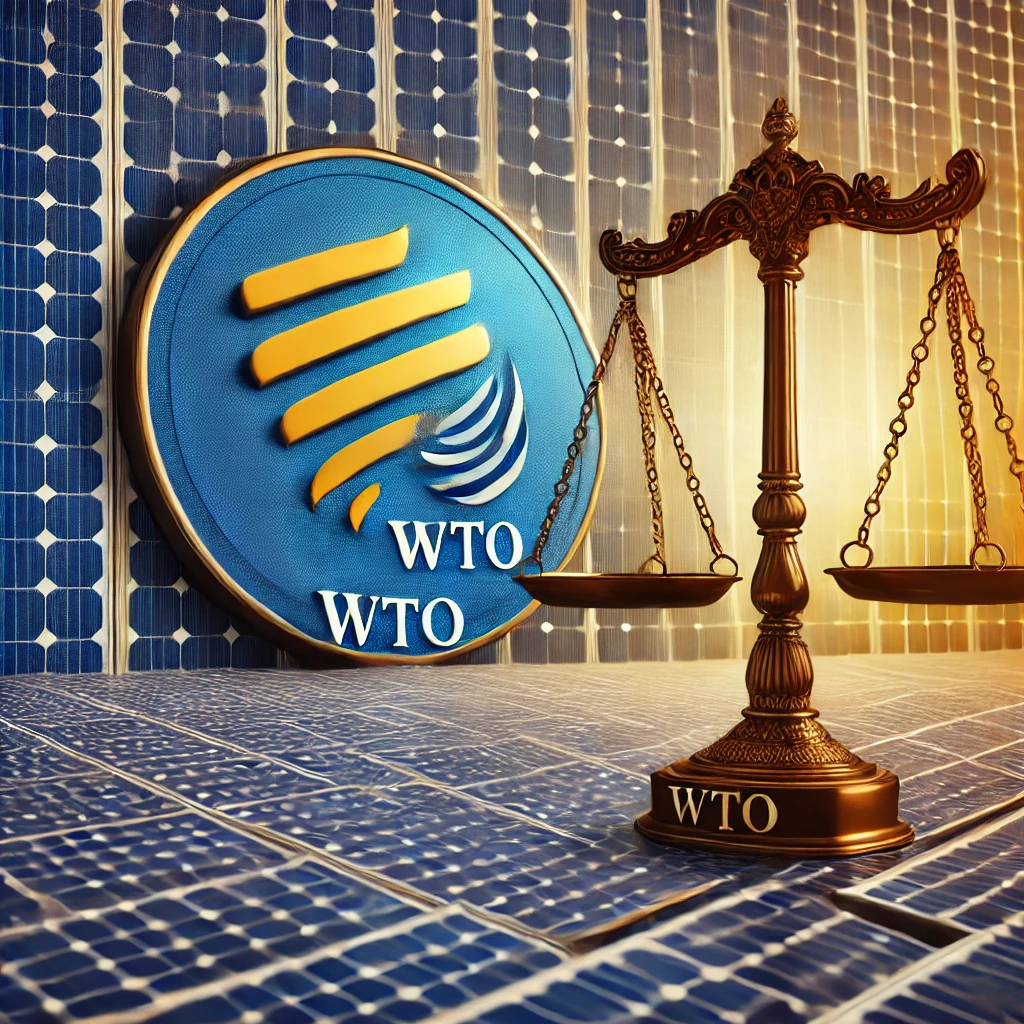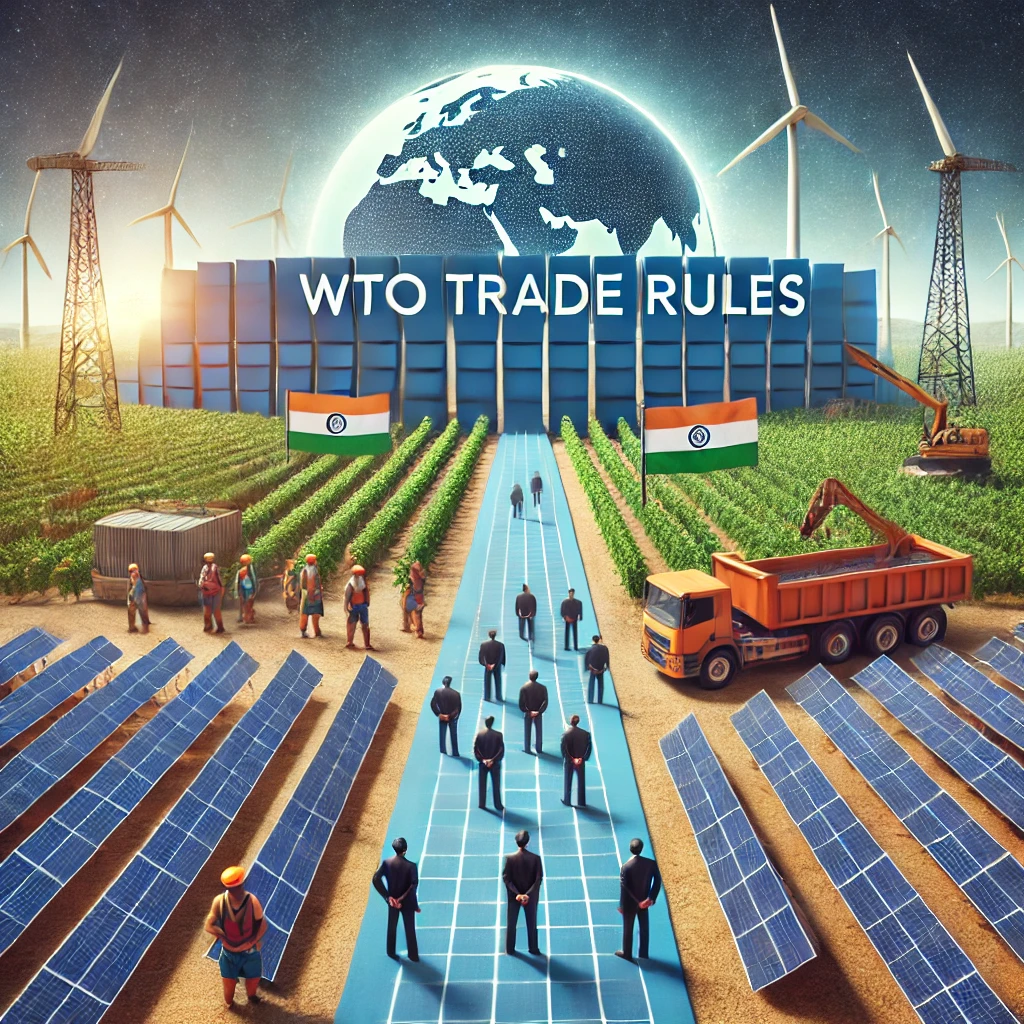
WTO Rules Against India’s Domestic Solar Content Requirements, Creating Climate Policy Dilemma
For a country racing toward clean energy, India just hit a major legal roadblock.
The World Trade Organization (WTO) Dispute Settlement Body has ruled against India’s domestic content requirements (DCR) for solar energy projects, siding with the European Union and Japan in a high-stakes trade dispute.
What Was the Dispute About?
Under India’s National Solar Mission, the government mandated solar developers to source equipment from domestic manufacturers—aiming to boost local industry and reduce reliance on Chinese imports.
The EU and Japan challenged this, arguing:
🔹 It violated global trade rules, restricting foreign competition.
🔹 WTO’s Agreement on Trade-Related Investment Measures (TRIMs) prohibits such protectionist policies.
🔹 Environmental goals cannot override fair trade principles.
India’s Defense
India pushed back, stating:
⚡ Solar energy is crucial for energy independence.
🌍 Environmental exceptions under WTO should apply.
🏭 Developing countries need flexibility to protect emerging industries.
WTO’s Verdict
The ruling stated:
🔹 India’s policy unfairly discriminated against foreign solar firms.
🔹 Environmental protection cannot justify trade restrictions.
🔹 India must amend its solar procurement policies or face penalties.
What Does This Mean for India?
📌 India must revise its solar manufacturing strategy—possibly shifting to incentive-based policies instead of mandatory sourcing.
📌 This could slow down India’s clean energy targets, creating uncertainty for investors.
📌 The ruling may fuel global debates over whether trade rules should be modified for climate action.
India now faces a tough choice: comply with WTO rules or fight for climate flexibility in global trade agreements.
🚨 The Big Picture:
If trade rules don’t accommodate climate goals, developing nations like India may struggle to build self-sufficient green industries.












comments